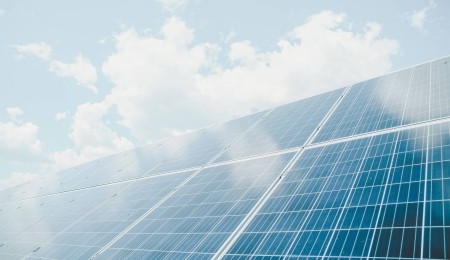Solar Hot Water Systems: Everything You Need to Know
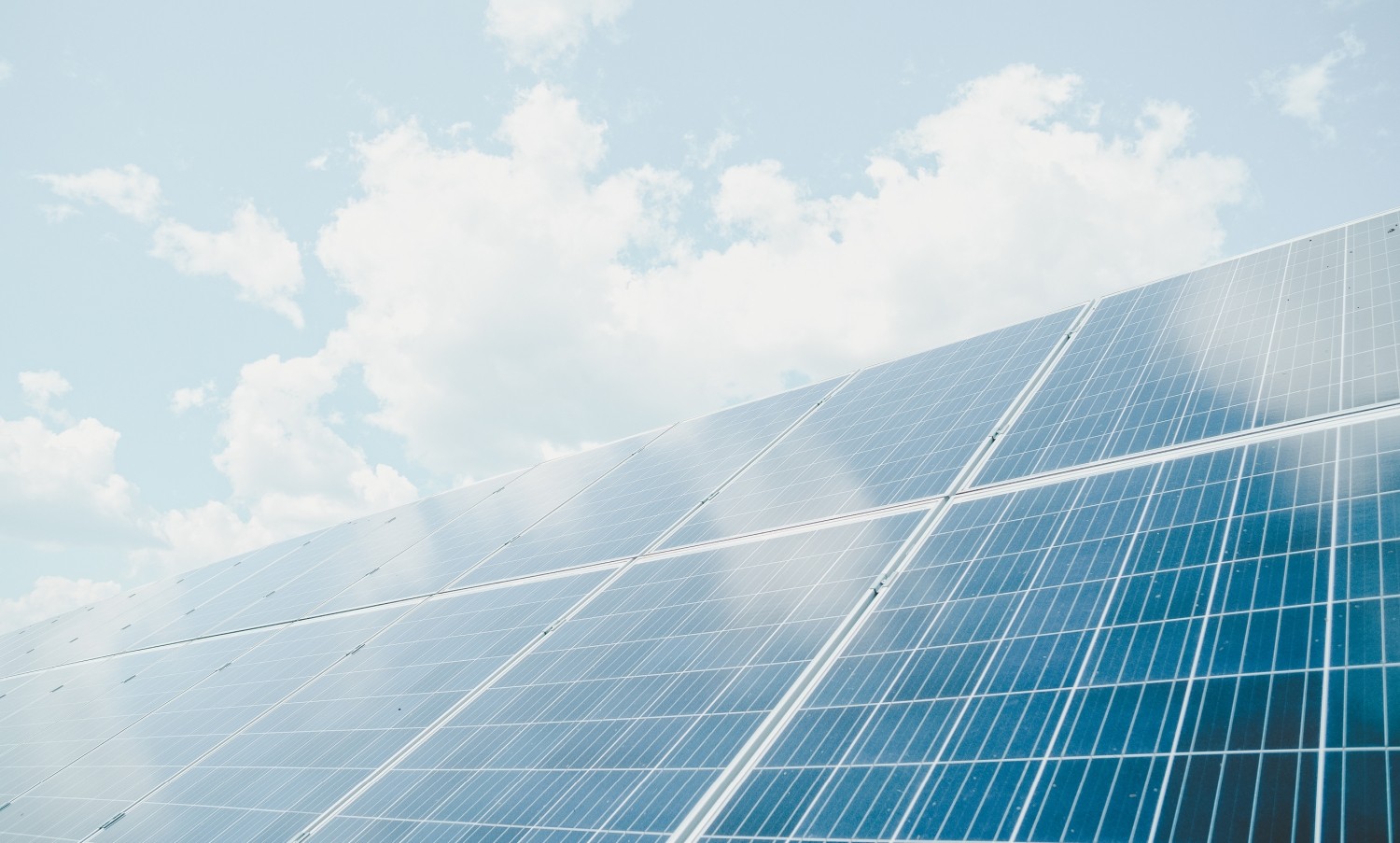
What is a Solar Hot Water System?
Solar hot water systems harness the sun’s energy to heat up water. As you can imagine, this makes them one of the most environmentally friendly options on the market. Solar hot water systems rely on solar panels mounted on the roof and a storage tank that holds the heated water for later use. Solar energy is converted into thermal energy, which heats up the water without having to heavily rely on electricity or gas.
H2: How Does a Solar Hot Water System Work?
Solar hot water systems work by using solar collectors – usually flat plates or evacuated tubes mounted on your roof. They work by:
- Solar collectors absorb sunlight and convert it into heat. If you have an existing solar system, that makes this option more budget-friendly.
- This heat is transferred to water either directly (in some systems) or through a heat exchanger.
- The heated water is stored in an insulated tank, which means the hot water is available for use whenever needed.
- Since solar power can be inconsistent, most systems include a backup electric or gas booster to make sure hot water is available even during chilly winter days.

Types of Solar Hot Water Systems
There are a few different types of systems you’ll need to learn about when it’s time to choose a system for your home. Here in Queensland, you’ll probably be picking between the two main types of solar hot water systems: close-coupled systems and pumped systems. Both types will include a backup booster – either electric or gas-powered – so that you’ll always have hot water available, even on cloudy days or at night.
Close-coupled systems
Close-coupled systems are a compact, all-in-one solution where the solar panels (also called collectors) and the water storage tank are mounted together on the roof. As the sun heats the water inside the collectors, the heated water naturally rises into the tank above through a process known as thermosiphon. Since there are no moving parts like pumps, these systems are very energy-efficient and only need very minimal maintenance.
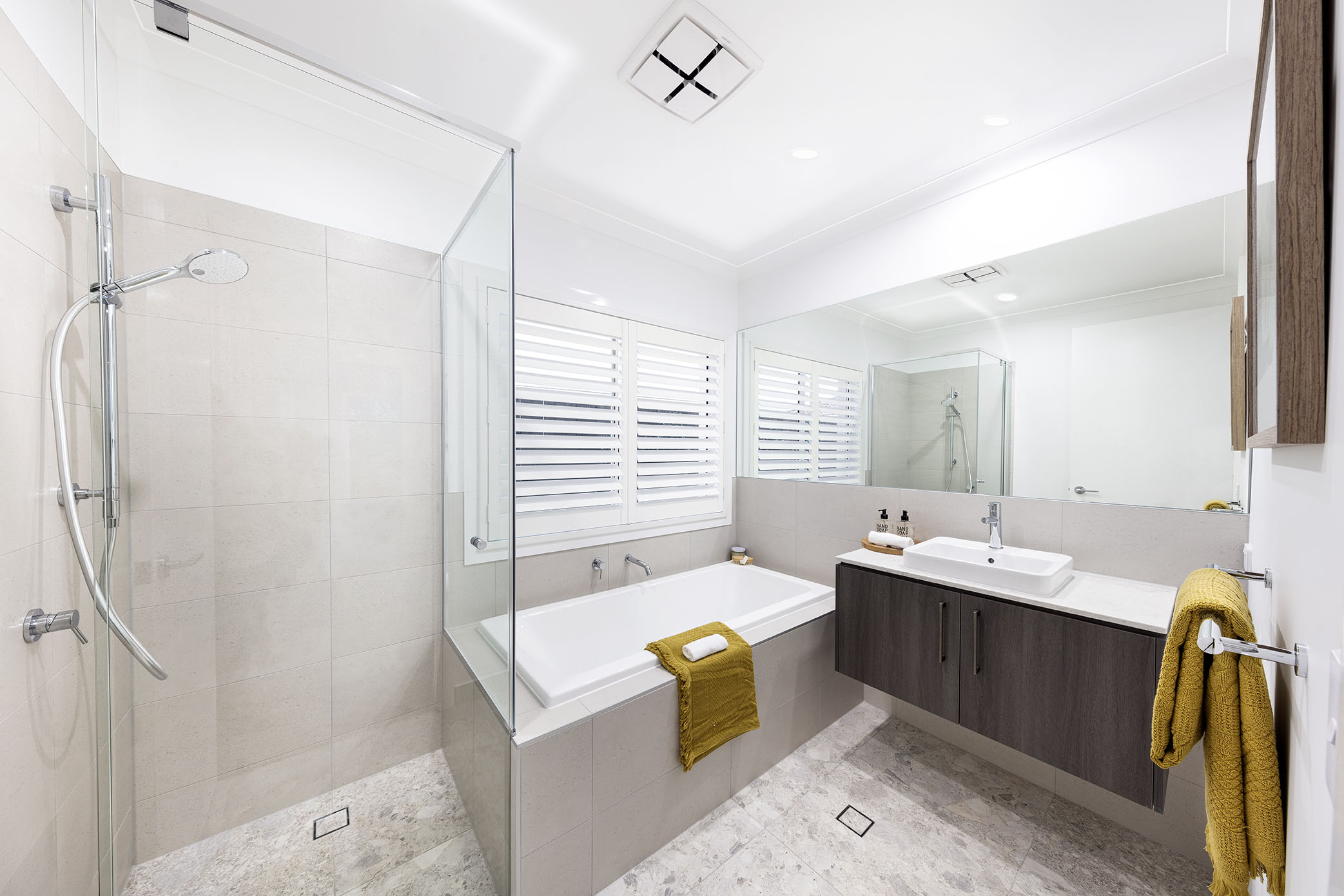
Pumped systems
Pumped systems, on the other hand, have the storage tank installed at ground level or inside the home itself, while the solar collectors are on the roof. A pump then circulates water between the tank and the collectors. These systems are more flexible in terms of tank placement and are great for homes where limited roof space or structural difficulties mean close-coupled system is pretty much impossible.
For either system, you could also include an electric or gas booster so you will always have access to hot water.
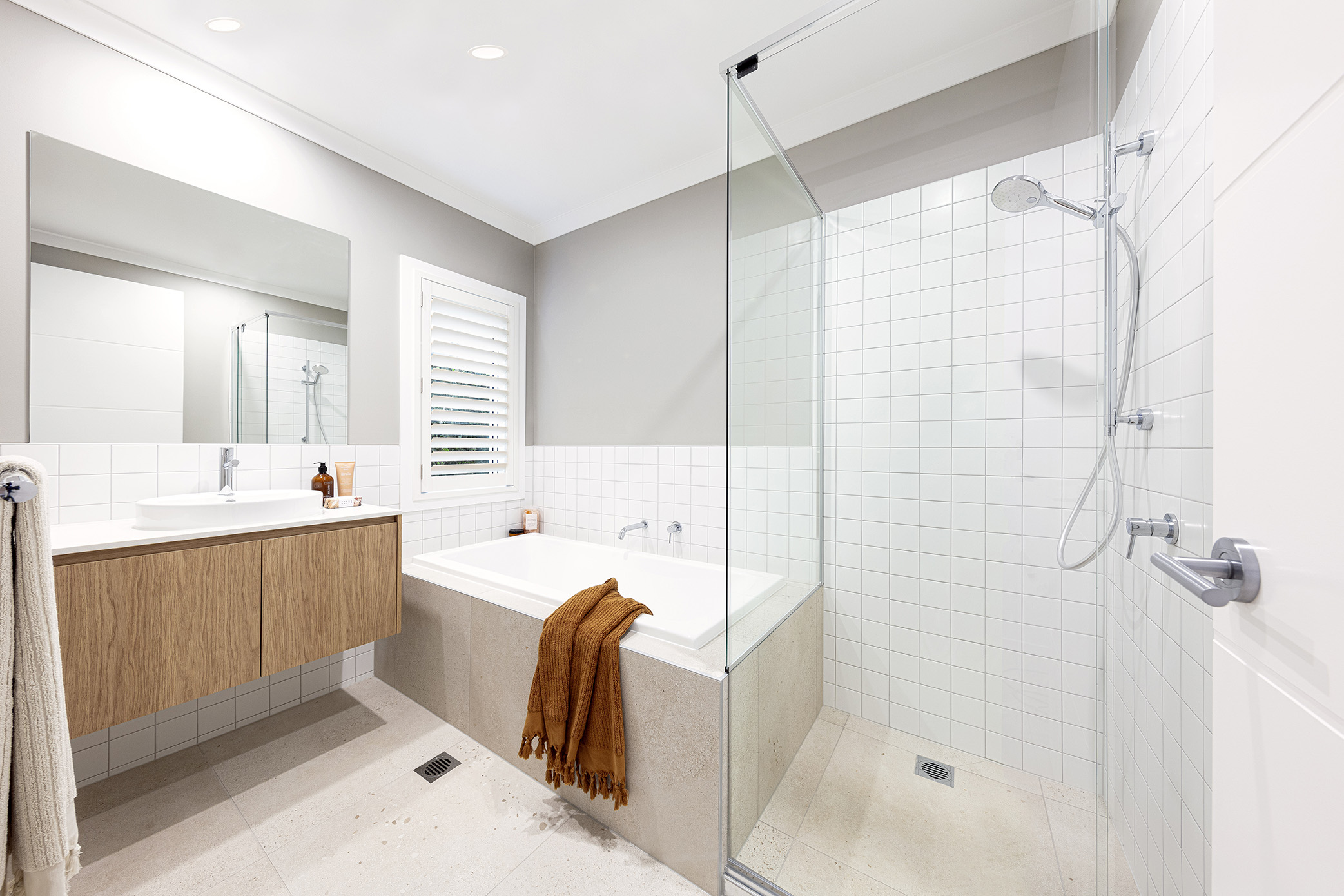
Do Solar Hot Water Systems Have Frost Protection?
Yes, most solar hot water systems will have frost protection to prevent any damage from happening during the winter months. Frost can be a concern in parts of Queensland where temperatures drop suddenly, as freezing water in the system's pipes or solar collectors can cause cracking and even permanent damage.
In close-coupled systems, frost protection is baked into its closed-loop design, where a heat transfer fluid (e.g. glycol) circulates instead of water. Since the fluid is resistant to freezing, your solar water heater will operate at peak capacity even in low temperatures.
For pumped systems, they can use various frost-protection mechanisms like temperature sensors and automatic draining, which stop water from staying in the collectors when temperatures drop.
If you live in a frost-prone part of Queensland, you’ll want to verify that your preferred solar hot water system has good frost protection for consistent performance year-round.
Can You Upgrade Your Hot Water System in Your New Brighton Home?
Great news – you can upgrade your hot water system when building a new Brighton Home. If you have a larger household or higher water needs, upgrading to a larger solar hot water system is an excellent idea. A bigger system will make sure your household always has ample hot water while still enjoying the energy efficiency and environmental benefits of a solar system. At Brighton Homes, we make it easy to customise your home to meet your specific needs.
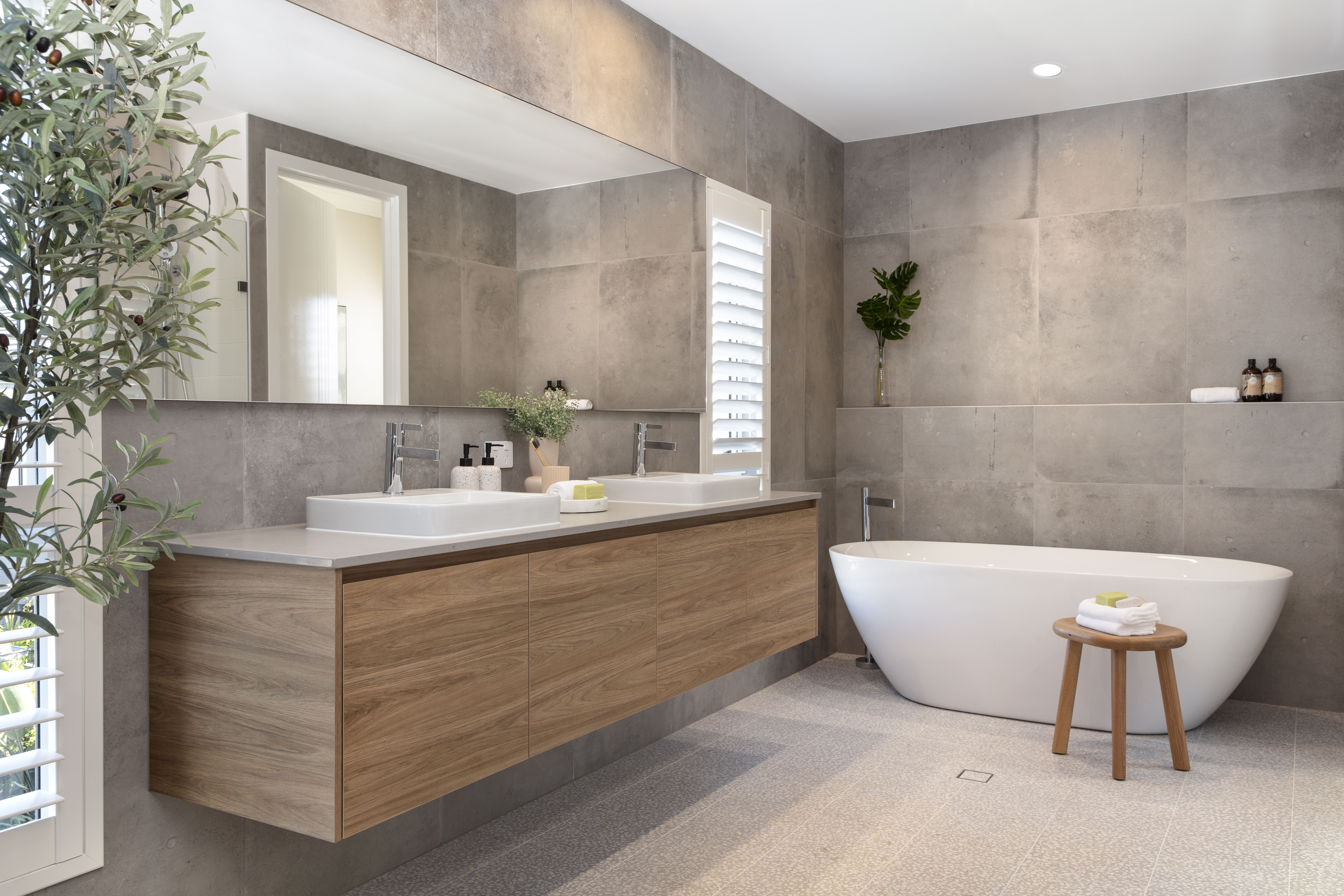
Is a Heat Pump More Efficient than Solar Hot Water?
In terms of energy efficiency, both heat pump hot water systems and solar hot water systems outperform traditional electric and gas hot water systems, but they differ in how they achieve this level of efficiency.
- A solar hot water system is generally more efficient because it uses renewable energy (sunlight). However, it really depends on the amount of sunlight that’s available day to day, meaning they might not always perform as well in colder, cloudier parts of the country.
Heat pump hot water systems, on the other hand, can work in all sorts of temperatures since they extract heat from the air. This is very handy in climates where sunlight is less reliable, as they don't depend on solar energy.
Benefits of Solar Hot Water Systems
Extremely Energy-Efficient
Solar hot water systems are extremely energy-efficient, especially in sunny Queensland. Harnessing the abundant sunlight all year round means you don’t need as much electricity or gas to heat your water. This makes them a perfect fit for eco-conscious households that also want to maximise their energy savings.
Cheaper Running Costs Once Installed
Once installed, your solar hot water system will result in much cheaper running costs compared to traditional systems. According to Choice, households switching from gas or electric storage tanks to solar hot water systems can reduce your hot water costs by at least 50%, with potential for even bigger savings depending on your system and household. While upfront costs for solar systems can be higher, over time you’ll see that your lower energy bills mean the system essentially pays for itself.
Reduces Your Carbon Footprint
A big draw of solar hot water systems is how they can drastically reduce your household's carbon footprint. Harnessing renewable energy from the sun instead of relying on fossil fuels means your greenhouse gas emissions are so much lower. For eco-friendly homeowners, installing a solar hot water system is the most practical way to live sustainably while reducing your dependence on non-renewable energy sources.
Long-Lasting
Most systems are built to stand up to the harsh Queensland weather and are made from durable, long-lasting materials. With proper care, your solar hot water system should last up to 15–20 years. They also come with warranties to give you peace of mind in case the unexpected ever happens.
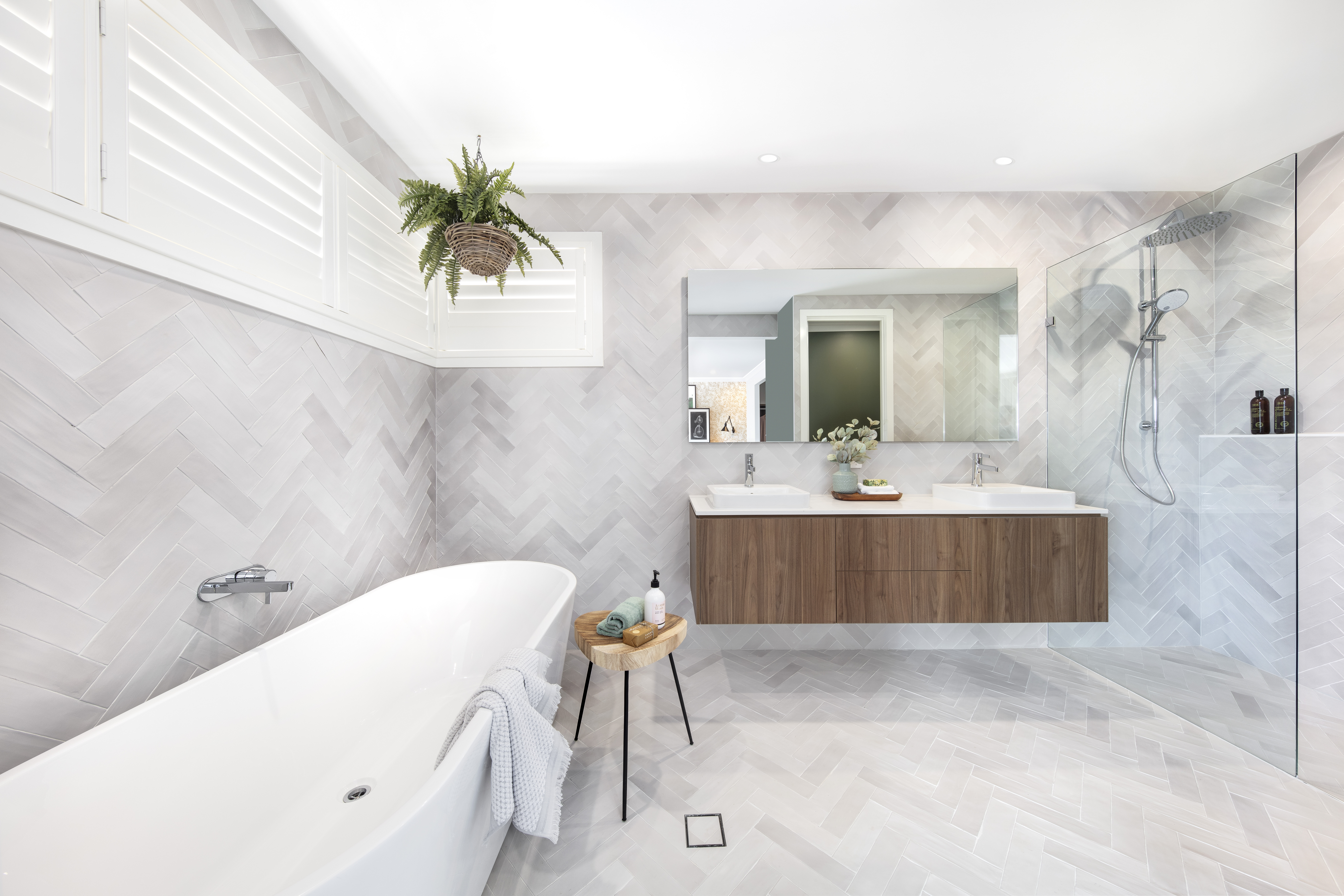
Disadvantages of Solar Hot Water Systems
Higher Upfront Costs Compared to Heat Pumps
The cost of a solar system can vary, and will depend on installation costs, any rebates you can take advantage of and the value of small-scale technology certificates (STCs) at the time of purchase. While your solar hot water system should pay for itself over time through lower energy bills, the initial investment may be a barrier for some homeowners.
Sunlight Availability
If your home is shaded throughout the day or if you live in a city that deals with plenty of cloudy days, then a solar system might not function as efficiently as you expect. In this case, you’ll need to rely more heavily on electric or gas boosters.
Needs Plenty of Roof Space
Not only do solar hot water systems require lots of roof space to house the solar collectors, the orientation of your roof will also play a role in maximising your system's efficiency. Ideally, solar panels should face north to capture the most sunlight. Homes with limited roof space or unfavourable roof orientations could struggle to make the most of solar collectors.
Government Incentives and Rebates
There are both national and state-specific government incentives, with the biggest one being the federal small-scale technology certificates (STCs), which can offset the upfront costs of installing a solar hot water system. If you're curious about available rebates specific to Queensland or other states, visit the Energy Department’s rebates and assistance page.
Choosing the Right System for Your Home
When deciding between a heat pump and a solar water system, both are energy-efficient and cost-effective compared to traditional electric and gas systems. But the right choice will depend on your budget, household size, how much roof space or outdoor space you have, as well as the climate.
- If you're in a sunny area and can afford a higher upfront investment, a solar hot water system may might give you more long-term savings and have a lower impact on the environment.
- If you're in a part of the country with less sunlight or have limited roof space, a heat pump may be the better choice as it has a lower upfront cost and can operate year-round.
Ultimately, both options are excellent choices for reducing your home's energy consumption while giving you a reliable supply of hot water. If you’re still unsure which system is right for you, speak with a professional who can help guide you through the decision-making process.
Maintenance and Performance
When it comes to maintaining a solar hot water system, it will generally need very little work beyond the occasional service. It's important to check for dust and other junk that can collect in the system itself to make sure everything is functioning properly.
At the same time you’ll want to check for any leaks or issues at least once a year. The performance of solar hot water systems can decline over time if it isn't checked over and maintained well.
Ready to build your dream home? With Brighton Homes, you can get a solar hot water system installed to make your property even more energy- and cost-effective. Contact the team at Brighton Homes today or visit one of our display homes across South East Queensland to find out more.


